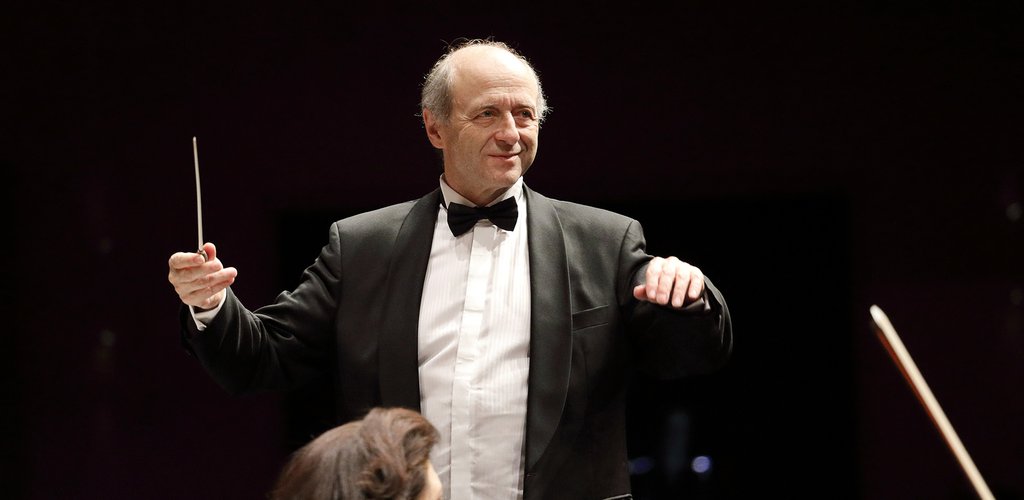…would be the only way to summarise tonight’s interpretation of Mahler’s Second Symphony, if one could only speak. Gerhard Hoffmann’s review of the Budapest Festival Orchestra’s concert in Frankfurt.
Iván Fischer took a contradictory yet very productive interpretation of Gustav Mahler’s Symphony No. 2, forcing the Budapest Festival Orchestra to play with pinpoint accuracy, as if he wished to make even angels cry. The performance took place at the Alte Oper in Frankfurt.
Mahler’s composing pours the great questions of humanity into world-class dramatic musical forms. His solemn, audience-testing Second Symphony attempts no less than to celebrate the resurrection of mankind that is going to breathe the air of another world in the aether. Psalm No. 130 (Out of the depths I cry to you, O Lord!) has had a profound presence in music history from Bach through Mendelssohn to modern times. Mahler’s magnum opus also stems from this psalm.
I have had the honour of listening to performances of my favourite symphonies by practically all of the world’s leading orchestras. Performances to date, however, seemed to pale in comparison to Fischer’s reading of the work.
Iván Fischer opened the Andante moderato with captivating dramaticism, a breath-taking orgy of harmony. He then employed the Hungarian orchestra playing with the utmost presence and precision to depict the soundscape arching towards Heaven. At this point, however, I would do well to withdraw from describing the rest of the movements, since at this point Mahler himself would have been moved immensely, even without the fundamental meaning of the lines he had borrowed from Klopstock: “With wings which I have won for myself,/ In love’s fierce striving,/ I shall soar upwards/ To the light which no eye has penetrated!”
The winds and brass were omnipresent and transparent in every detail, the violins and cellos lithe and tender within the lyrical flow of musical tone-panoramas. Even at the most impetuous instrumental moments, the music remained transparent, never descending into chaos or becoming disharmonious.
The two captivating solos emerged like the music of the spheres: Elisabeth Kulman’s beautiful mezzo-soprano made the ‘Urlicht’ movement’s “O Röschen rot!” sound wonderfully velvety, with devoted declamation. Christiane Karg’s sang “Aufersteh´n, ja aufersteh´n wirst du” with her enchanting soprano voice as if it were a ray of light promising resurrection. The two ladies’ voices painted finely detailed miniatures during the duets. The Czech Philharmonic Choir (Brno) produced an audible depth of field almost spatially with great emotional intensity and harmonic sound. The final part of the work saw all the performers in astonishing unity, striving towards the heavens.
Without a single moment of intimacy, an almost ten-minute-long ovation ensued to celebrate this lasting performance.
